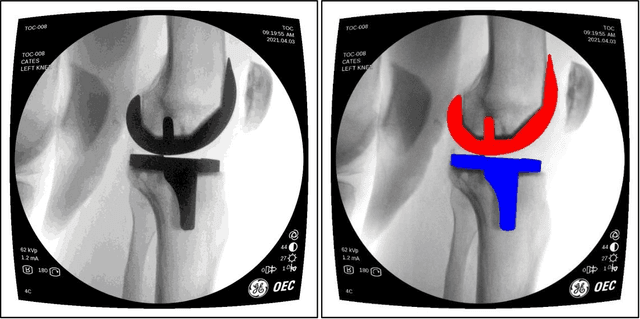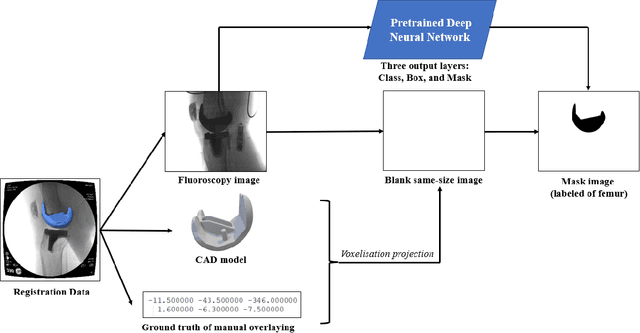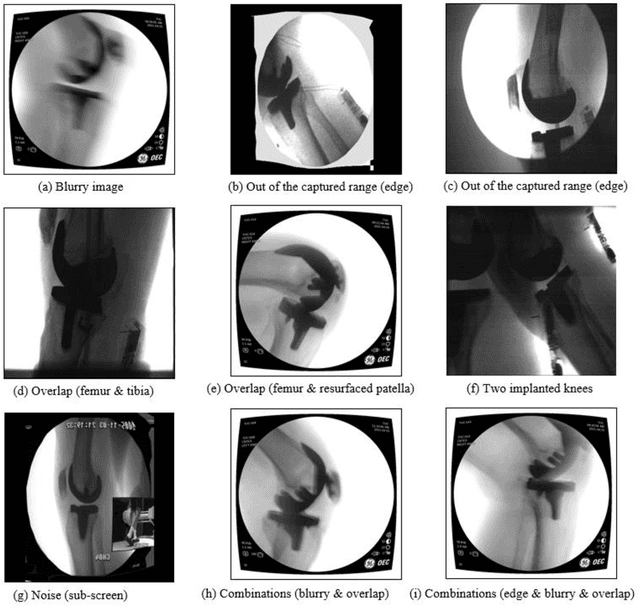An Automated Real-Time Approach for Image Processing and Segmentation of Fluoroscopic Images and Videos Using a Single Deep Learning Network
Paper and Code
Jan 23, 2024



Image segmentation in total knee arthroplasty is crucial for precise preoperative planning and accurate implant positioning, leading to improved surgical outcomes and patient satisfaction. The biggest challenges of image segmentation in total knee arthroplasty include accurately delineating complex anatomical structures, dealing with image artifacts and noise, and developing robust algorithms that can handle anatomical variations and pathologies commonly encountered in patients. The potential of using machine learning for image segmentation in total knee arthroplasty lies in its ability to improve segmentation accuracy, automate the process, and provide real-time assistance to surgeons, leading to enhanced surgical planning, implant placement, and patient outcomes. This paper proposes a methodology to use deep learning for robust and real-time total knee arthroplasty image segmentation. The deep learning model, trained on a large dataset, demonstrates outstanding performance in accurately segmenting both the implanted femur and tibia, achieving an impressive mean-Average-Precision (mAP) of 88.83 when compared to the ground truth while also achieving a real-time segmented speed of 20 frames per second (fps). We have introduced a novel methodology for segmenting implanted knee fluoroscopic or x-ray images that showcases remarkable levels of accuracy and speed, paving the way for various potential extended applications.
 Add to Chrome
Add to Chrome Add to Firefox
Add to Firefox Add to Edge
Add to Edge